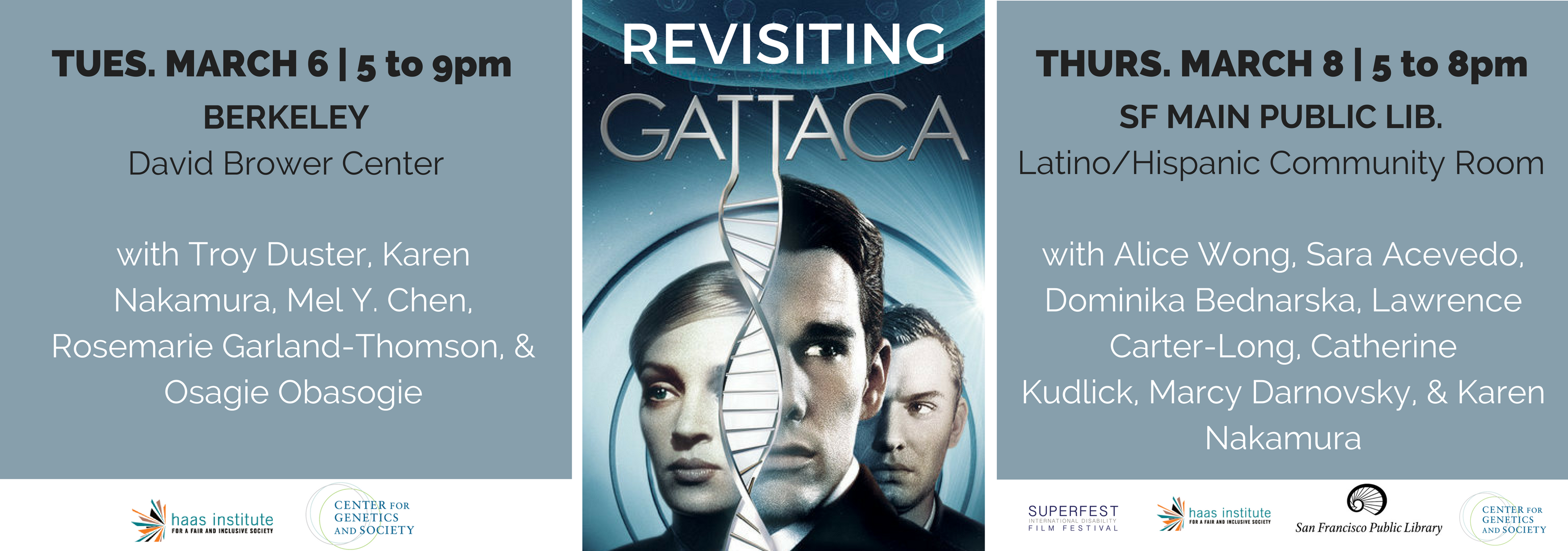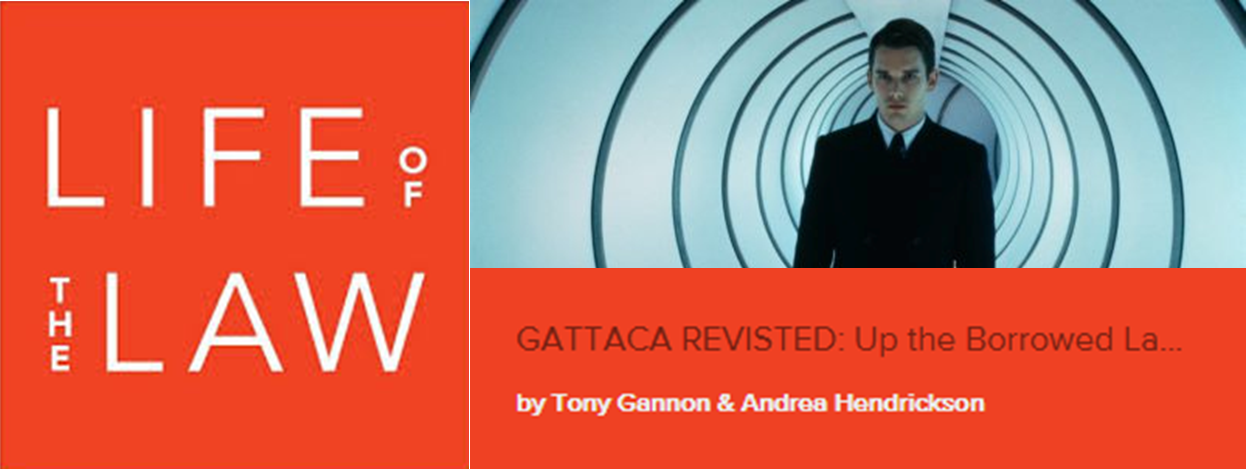Gattaca at 20: Looking Back, Looking Ahead…
Twenty years after its release, the film Gattaca remains an enduring touchstone for discussions of human genetic technologies. Starring Ethan Hawke, Uma Thurman, and Jude Law, Gattaca presents a dystopian vision of the “not-too-distant future,” in which society is divided into genetic “haves” and “have-nots.” The “Valids,” conceived through IVF and selected for supposedly “superior” genetic profiles, monopolize high status careers and positions in society; the “In-Valids,” conceived without technology, are discriminated against and excluded, presumed to be “inferior” because they differ from a narrowly defined standard of genetic perfection. The story follows Vincent, an “In-Valid” seeking to defy this system and achieve his dream of space flight.
In the twenty intervening years, “Gattaca” has become shorthand for the potential that genetic engineering could be misused to produce an oppressively unequal and intolerant society. Today, as technical developments raise anew the possibility of genetically modifying future generations, and a resurgence in overt racism and race science gathers steam, the film’s lessons are more relevant than ever.
So what can we learn from Gattaca about the possibilities of human genetic technologies for supporting the common good or intensifying and increasing social inequality? And how close is our present-day reality coming to its dystopian vision?
To explore these questions, the Center for Genetics and Society co-sponsored two Gattaca-centered public events in the Bay Area. Each included a screening of the film, followed by discussion among a panel of scholars and activists. Lively audiences engaged each panel with questions and comments about the film.
Read more about these events and watch the videos below.
Podcast
Check out Living in Gattaca from Life of the Law, which features our two Gattaca events.
Video
Panel Discussion of Gattaca in Berkeley
Troy Duster (UC Berkeley) offers opening remarks about the film Gattaca, followed by a panel discussion between Duster, Rosemarie Garland-Thomson (Emory), Osagie Obasogie (UC Berkeley, CGS), and moderator Karen Nakamura (UC Berkeley).
The event, co-sponsored by CGS and the Haas Institute for a Fair and Inclusive Society at UC Berkeley, took place at the David Brower Center in Berkeley on March 6, 2018.
Panel Discussion of Gattaca in San Francisco
Catherine Kudlick (Longmore Institute, SFSU) offers opening remarks about the film Gattaca, followed by a panel discussion with Kudlick, Marcy Darnovsky (CGS), Sara Acevedo (California Institute of Integral Studies), Lawrence Carter-Long (Disability Rights Education and Defense Fund), Dominika Bednarska (Performer/Activist), and moderator Karen Nakamura (UC Berkeley).
The event, co-sponsored by Center for Genetics and Society, Superfest International Disability Film Festival, San Francisco Public Library, and UC Berkeley's Haas Institute for a Fair and Inclusive Society, was held at San Francisco Main Public Library on March 8, 2018.
About Gattaca
Set in the not-too-distant future, Gattaca presents a dystopian society that uses technology to enforce a new form of inequality. Almost every child is born through assisted reproduction; embryos are screened for perceived deficiencies and only those with what are thought to be desirable traits – highly intelligent, attractive, and able-bodied – are implanted for gestation and birth. Those born without these perceived genetic advantages have little opportunity or support. Instead of becoming rocket scientists, they clean the floors.
Gattaca raises important conversations about the nature of health and disability, and whether diversity and inclusion are meaningful values in a society where genetic technologies determine opportunity and resources. It also suggests uncomfortable questions – how close is our present reality coming to Gattaca’s fictional dystopia?
Image ©SonyPictures
Additional Resources
- Revisiting Gattaca in the Era of Trump by Osagie Obasogie, November 1 2017, Scientific American
- Resisting Ableism: Disabled People & Human Gene Editing (captioned video) with Alice Wong, Founder of Disability Visibility Project for the Stanford Medicine X conference
- Storify of #FilmDis Twitter Chat with Dominick Evans and co-host Alice Wong from Disability Visibility Project, February 18, 2017
- The Disablist Nature of Desiring Perfection in Gattaca by Dominick Evans, Dominick Evans Online, January 31, 2017
- Whatever Happened to #CRISPRfacts? by Leah Lowthorp, July 31, 2017, Biopolitical Times
- Re-Watching Gattaca at the Dawn of the Age of CRISPR and Genetic Editing by Yasmin Tayag, November 23, 2015, Inverse
- Will Gattaca Come True? by Mara Hvistendahl, April 27, 2012, Slate
- Dystopian "In Time" and Inequalities in Our Time by Emily Beitiks, December 1, 2011, Biopolitical Times
- Revealing Disability: Gattaca and the Ideology of Ableism by Reneharrison, September 18, 2009, Politics of Writing
- Gattaca Framing in the News by Osagie Obasogie, June 18, 2009, Biopolitical Times
- Are We Headed for a Sci-Fi Dystopia? by Marcy Darnovsky, March 22, 2008, Alternet





